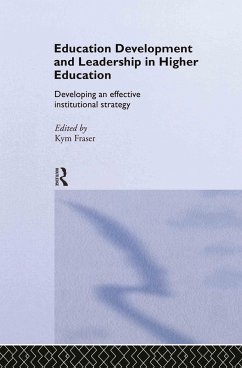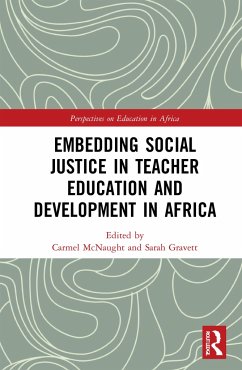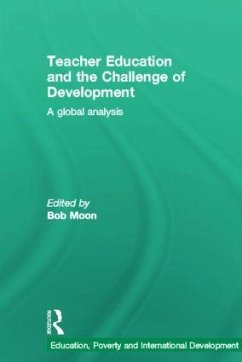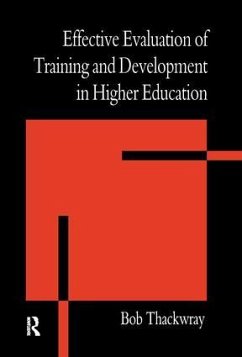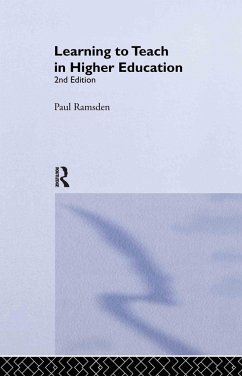
Teacher Development in Higher Education
Existing Programs, Program Impact, and Future Trends
Herausgeber: Simon, Eszter; Pleschová, Gabriela

PAYBACK Punkte
89 °P sammeln!
Concerns about the quality of teaching and learning in higher education have given rise to teacher development programs and centers around the world. This book investigates the challenges and complexities of creating instructional development programs for present and future academics. Using case studies from a variety of countries, including Estonia, Singapore, the United States, and the United Kingdom, it examines issues that are important for higher education researchers as well as for higher education managers. The book introduces different responses from around the world to the need to improve teaching in higher education, demonstrates many different ways success may be understood, and investigates what factors may influence the results of instructional development. Contributors use these factors, as well as those found in the related literature, to explain program success through theoretical frameworks. This book also provides input for higher-education managers by pointing out how the local context and both institutional and national policy-making may help or hinder the effective preparation of professors for their teaching responsibilities.





